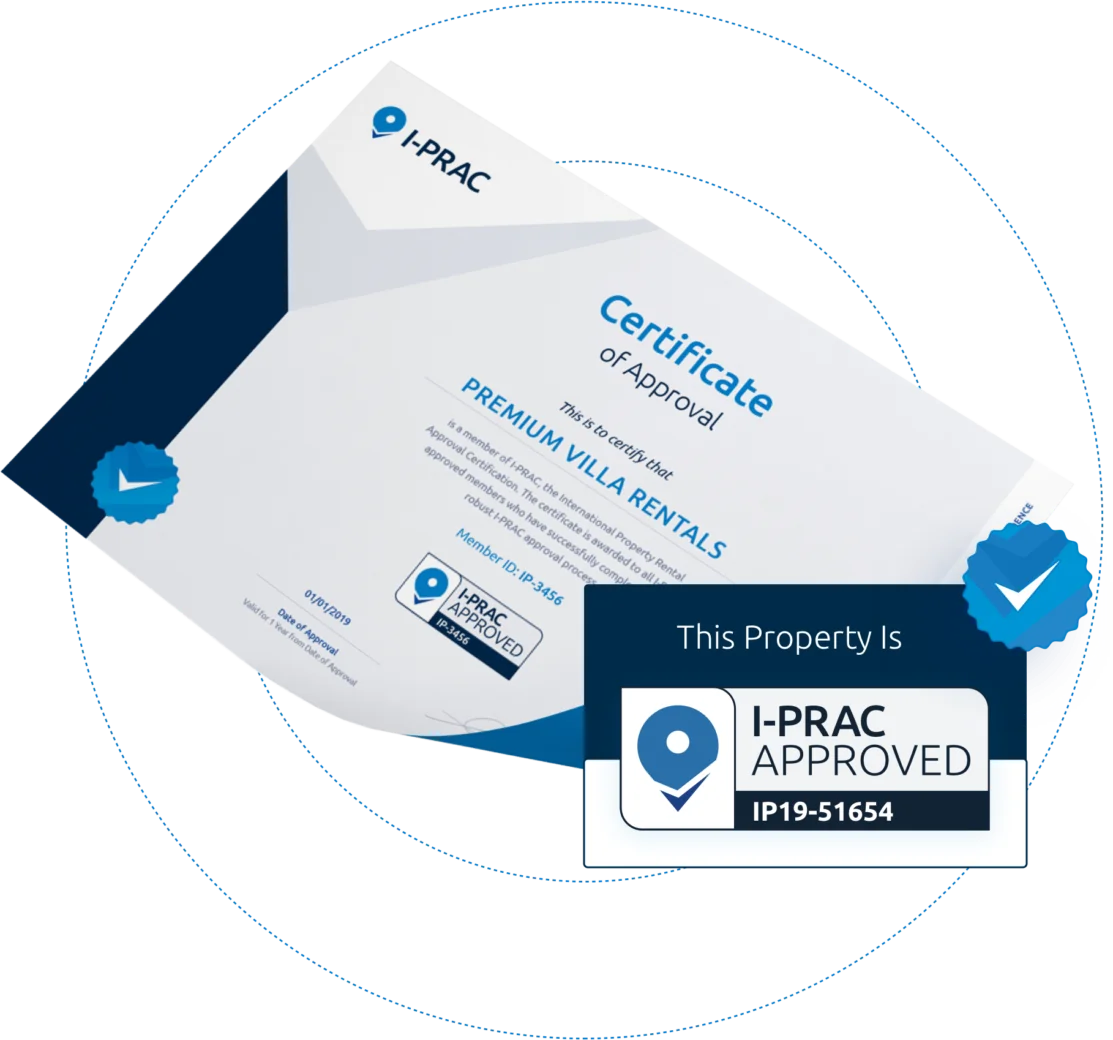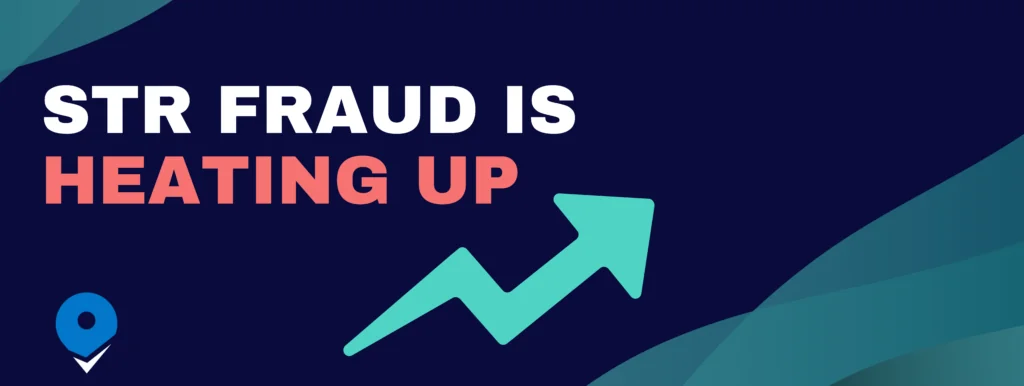This week, Money Reporter of The Telegraph, Madeleine Ross published a story about an unsuspecting guest almost getting conned out of £14,000 by what’s been referred to as an ‘Airbnb fraudster’.
This story comes as part of the global spike in short-term rental fraud, as much of the industry prepares for the summer season – also recognised as one of the busiest times of the year.
A calculated scam, nearly costing thousands, veiled by a WhatsApp conversation
The unsuspecting guest in Ross’s story came across a property listing that was supposedly linked to a company by the name of ‘Estate Extravaganza Limited’. Upon making contact with the company, the guest was advised to connect with their agent, who’s name was ‘Edward’, on WhatsApp.
The WhatsApp conversation seemed reasonably professional; and the guest – who was now gradually being reeled into a cruel scam, was none-the-wiser until she visited the property in person.
Upon arriving at the listed property, the guest met the real owner – who confirmed that he’d never heard of the company, nor an agent by the name of Edward. The owner explained that his property was not available for rent at that current time; although he did list it on Airbnb now and again.
Upon further investigation, it’s now come to public knowledge that Estate Extravaganza Limited – which had only been incorporated in March this year according to Companies House, had been operating a scam to trick guests into paying them hefty deposits for non-existent bookings. In this case, they had sent the guest a 28-page ‘professional looking document’ which asked for six months’ rent upfront, alongside a one months’ rent deposit – totalling to £14000.

The dark side of summer: The holiday season is a breeding ground for short-term rental fraudsters
Sadly, this week’s story from The Telegraph is just one of many that we can expect to see in the short-term rental industry this time of year.
Short-term rental fraudsters have been known to leverage the peak summer season, while demand for accommodation is high and generally expensive. These con-artists post fake listings at competitive prices, as a way to trap holidaymakers who are on the look-out for great deals.
While many believe they could spot a short-term rental scam, the sophisticated execution of these crimes is what’s most concerning. As well as misusing some of the world’s most reputable OTAs such as Airbnb, Booking.com and VRBO, fraudsters have been known to invest in websites, marketing and fake sales teams to convince travellers that they can be trusted. Just last year, Airbnb removed 59,000 fake listings and stopped another 157,000 from getting published.
This is bad news for legitimate short-term rental operators too, as trust continues to get eradicated in the industry, and guests choose to book with hotels instead. In fact, 2023 was the highest year on record for ‘rental scam’ in the UK (an 11% increase since 2022), proving the rise in uncertainty among travellers.
With little-to-no real regulation in the short-term rental industry and the infamous, unfulfilled promise from Airbnb (who first claimed they would verify all their listings in November 2019), booking a short-term rental over the upcoming summer period will feel more like a game of lottery for guests.
The promise of protection and peace of mind this summer season – with I-PRAC
As it stands, the only solution to protect guests from holiday rental fraud and protect legitimate STR hosts from losing thousands in business to hotels and other competitors, is I-PRAC. In other words, the only verification, membership and trust consultancy platform in the short-term rental industry that guarantees the legitimacy of all its approved members, and fully compensates guests for any viable shortcomings*
*This applies to guests who’ve booked with an I-PRAC accredited property, and who’ve registered their booking on I-PRAC’s website.
With a notable increase in global short-term rental fraud and numerous AI tools such as ChatGPT, which make committing these crimes even easier, there is vast mistrust across the industry – that remains largely unaddressed.
I-PRAC’s meticulous verification process checks the legitimacy of a property and/or rental agency owner’s ID, proof of property ownership, personal and business social media handles, bank account information and business registration details (among several other checkpoints); and is currently the only solution that can provide guests with 100% peace of mind.
If, for instance, it was compulsory for all short-term rental operators to be I-PRAC accredited before opening their doors to innocent guests, then occurrences like the one reported by The Telegraph this week would simply not occur.
The fraudulent short-term rental company, ‘Estate Extravaganza Limited’ would’ve immediately been called out by I-PRAC’s verification team based on (as a minimum)
🚩 Failing to provide proof of property ownership
🚩 Failing to provide proof of utility bills, addressed to the rental property
🚩 Failing to provide proof of bank account information
🚩 Failing to provide business website handles and other social media handles
🚩 Failing to provide authentic and dated photographs of the property (which I-PRAC’s team reverse checks)
The above are just some of the necessary checkpoints that applicants need to meet before earning I-PRAC accreditation and their unique membership ID, which cannot be replicated by fraudsters.

An increase in holiday rental fraud this summer could be detrimental to legitimate operators
As we’ve already alluded to, the problem with short-term rental fraud is that it tars even legitimate operators would the same brush.
Meaning, if you’re a perfectly credible short-term rental host, you’re still at risk of losing bookings to hotels and alternative accommodation providers, as travellers are becoming increasingly aware of the lack of regulation in the industry. While many STR operators are still failing to address, this is the key reason why people are reluctant to book STRs.
However, those who are I-PRAC accredited and can communicate the benefits of this to their guests (such as 100% peace of mind, payment protection and compensation) have been known to increase their conversion rate by 67%, according to our in-house research.
In our years’ of experience, we’ve found that this is the best way to reinforce trust in the short-term rental industry – so that consumers no longer have to think twice, or live in the fear of losing their money before booking a summer holiday.
The truth is, stories of horrific short-term rental scams have been hijacking our news feeds for years. In fact, we urge you to type the words ‘short-term rental scams’ into your search engine right now; and you’ll find that millions have already been lost to con artists, who continue to get away with dipping their fingers into an unregulated industry. And why wouldn’t they? It’s easy for them to do.
It remains to be seen if the short-term rental industry – in its entirety – will realise the importance of genuine verification and how this can change the entire trajectory of our market.
In the meanwhile, guests may continue to book their summer stays with I-PRAC accredited hosts where there’ll be at zero risk of getting scammed.
For more reports about short-term rental fraud, visit the report section of this Resource Hub.
To find our more about becoming I-PRAC accredited and/or partnering with I-PRAC, contact: [email protected]



